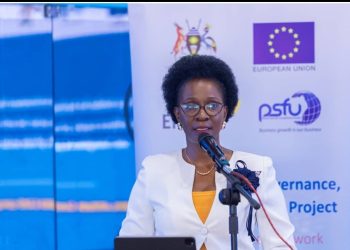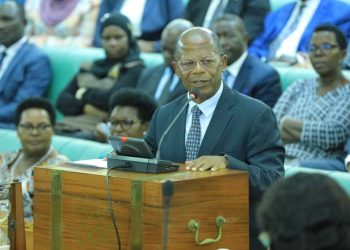It has taken decades for Ugandans to appreciate Kiswahili as a language. However, this is bound to change soon in both private and public secondary schools.
Under the new lower secondary school curriculum, Kiswahili will be compulsory for all Senior One and Two students to facilitate its use as National Language.
This move means that the plans which were being campaigned by Buganda top officials to make Luganda the National languages have been put in a safe box till further notice.
However, it will be among the elective subjects at Senior Three and Four. The new secondary school curriculum was developed by the National Curriculum Development Centre (NCDC) and approved by the Government.
The new curriculum is expected to be rolled out in the next academic year, which starts in February 2020. The lower secondary curriculum framework says compulsory Kiswahili will enable learners to benefit from the East African integration.
Since it is the most widely spoken African language, the framework says, Kiswahili will be used as the medium of communication for further studies and employment in the East African region and beyond. Christopher Muganga, the head of the secondary school curriculum at NCDC, is optimistic that Kiswahili will lead Ugandans to regional job markets.
Missed opportunities
He alluded to the fact that Ugandans have declined to embrace Kiswahili and that it has cost them opportunities. Working in Tanzania or DR Congo, he said, cannot be possible if one does not know Kiswahili.
“Our graduates have missed out on employment opportunities due to language barrier. At the moment, English alone is not enough to work in the region,” he said.
Remigius Baale, a curriculum expert with NCDC, said: “We believe that by making Kiswahili compulsory at Senior One and Two, learners will take heart.” Dr Rebecca Kirunda from Kyambogo University also backed the move.
“The current generation must have the ability to speak or write more than one international language,” she said. They made the remarks yesterday at Esella Country Hotel in Kiira, Wakiso district, during the training of 90 national curriculum trainers on the new curriculum. The training, which will run for 10 days, started on Tuesday.
These are part of the 400 trainers who will be responsible for training 49,000 lower secondary school teachers across the country.
Why Kiswahili has failed
Plans to introduce Kiswahili in schools has been on since the early 2000s.
“It has been an uphill task,” Muganga said. In Uganda, Kiswahili is commonly used by the armed forces and the Police as the medium of communication.
“There was a perception that Kiswahili is for security officials and criminals. Often, hardcore thieves used Kiswahili to rob. This is the main reason why Ugandans had shunned it,” Muganga said.
Up to date, he said, the language is still associated with criminality and violence. Muganga added: “The most common Kiswahili words in Uganda are toka nje (get out/), kuja hapa (come here), M’pige (shoot) or kukamatwa (catch/arrest). These were words used to terrorise Ugandans.”
However, with the discipline that the Uganda People’s Defence Forces have exhibited over the years, Muganga said, Ugandans are learning to appreciate the language.
AU backs use of Kiswahili
In July, the African Union (AU) in partnership with the East African Community agreed to set the pace for the recognition and promotion of Kiswahili as a language of wider communication on the continent.
In August, the Southern Africa Development Community (SADC) agreed to adopt Kiswahili as its fourth official language. Subsequently, South Africa also announced that Kiswahili will be introduced as an optional language in schools by 2020.






























































